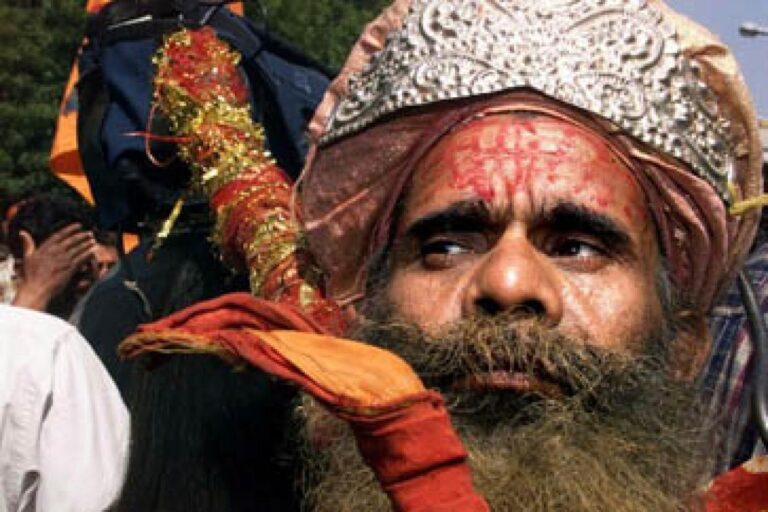In a recent development stirring political and religious discourse, an Indian-origin MAGA activist has weighed in on the controversy surrounding JD Vance’s comments on Christianity. Speaking to The Times of India, the activist suggested that Hindus should have no objections if Vance’s views reflect his personal faith. This statement comes amid ongoing debates about religious identity and political alignment in the United States, further highlighting the intersection of faith and politics in contemporary dialogue.
Hindu Community’s Perspective on Usha and JD Vance Christianity Debate
Many voices within the Hindu community have expressed a pragmatic stance regarding the ongoing debate between Usha and JD Vance over Christianity’s role in American politics. Several leaders and activists emphasize that while faith is deeply personal, the public discourse should respect religious diversity and avoid polarizing rhetoric. A recurring theme among respondents is the belief that Usha’s personal faith or JD Vance’s Christian identity should not be a source of contention or a political weapon, but rather an aspect of their individual journeys. This sentiment aligns with a growing call for inclusivity and mutual respect among religious communities, especially in diaspora spaces where Hindu values of tolerance and coexistence are strongly upheld.
Key views voiced by the Hindu community include:
- Faith should not become a litmus test for political qualification.
- Respecting all religious expressions fosters social harmony.
- Religious identity must remain a private matter, free from public shaming or leverage.
- Indian-origin individuals can maintain their cultural heritage while embracing diverse American religious landscapes.
| Concern | Community Response |
|---|---|
| Religious Polarization | Advocacy for dialogue and understanding |
| Public Religious Identity | Support for privacy and freedom of belief |
| Political Exploitation | Calls for separating faith from political agendas |
Indian-Origin MAGA Activist’s Take on Cultural and Religious Inclusivity
An Indian-origin MAGA activist recently addressed the ongoing debate around JD Vance’s comments on Christianity, emphasizing the importance of mutual respect and inclusivity among religious communities in America. He argued that Hindu Americans, like many other minority groups, should embrace a spirit of openness rather than division, especially when it comes to expressions of faith in the political arena. “If Usha feels comfortable sharing her Christian beliefs, Hindus should not only tolerate but also appreciate the cultural diversity it brings,” he stated, highlighting how religious pluralism strengthens the American fabric.
In a detailed outline, the activist identified key components necessary to foster societal harmony in a multicultural environment:
- Respect: Understanding and valuing different faiths without hostility.
- Dialogue: Open communication to clear misconceptions and build bridges.
- Unity in diversity: Collaboration despite religious differences.
- Civic engagement: Encouraging participation across communities in political processes.
| Aspect | Implication for Inclusivity |
|---|---|
| Religious Freedom | Essential for democratic participation |
| Cultural Recognition | Promotes respect and acceptance |
| Political Representation | Ensures diverse voices are heard |
| Community Solidarity | Strengthens societal bonds |
Recommendations for Bridging Faith and Political Identity in America
In navigating the complex intersection of faith and political identity, open dialogue must be prioritized to foster understanding among diverse communities. Encouraging conversations that respect both religious convictions and cultural backgrounds can help dismantle stereotypes and build common ground. Community forums, interfaith initiatives, and educational programs serve as vital platforms for these exchanges, allowing individuals to explore shared values without compromising their unique identities.
Furthermore, political leaders and activists should emphasize inclusion by acknowledging the multifaceted nature of identity in America. Policies and rhetoric that highlight unity rather than division can reduce alienation among minority groups within political movements. The table below summarizes key strategies for bridging these divides effectively:
| Strategy | Description | Impact |
|---|---|---|
| Interfaith Dialogue | Facilitated discussions between different religious groups | Builds empathy and reduces misconceptions |
| Inclusive Policy Making | Crafting legislation reflecting diverse beliefs | Promotes equitable representation |
| Community Engagement | Collaborative events that bring groups together | Strengthens social cohesion |
| Media Representation | Highlighting stories from varied cultural perspectives | Fosters broader public awareness |
Concluding Remarks
As the debate around JD Vance’s comments continues to reverberate, voices like that of the Indian-origin MAGA activist underscore the complex intersections of faith, identity, and politics in contemporary America. While differing perspectives emerge, the dialogue reflects broader questions about religious tolerance and cultural acceptance within political discourse. Moving forward, the conversation is likely to remain a focal point as communities grapple with reconciling diverse beliefs in an increasingly polarized environment.




